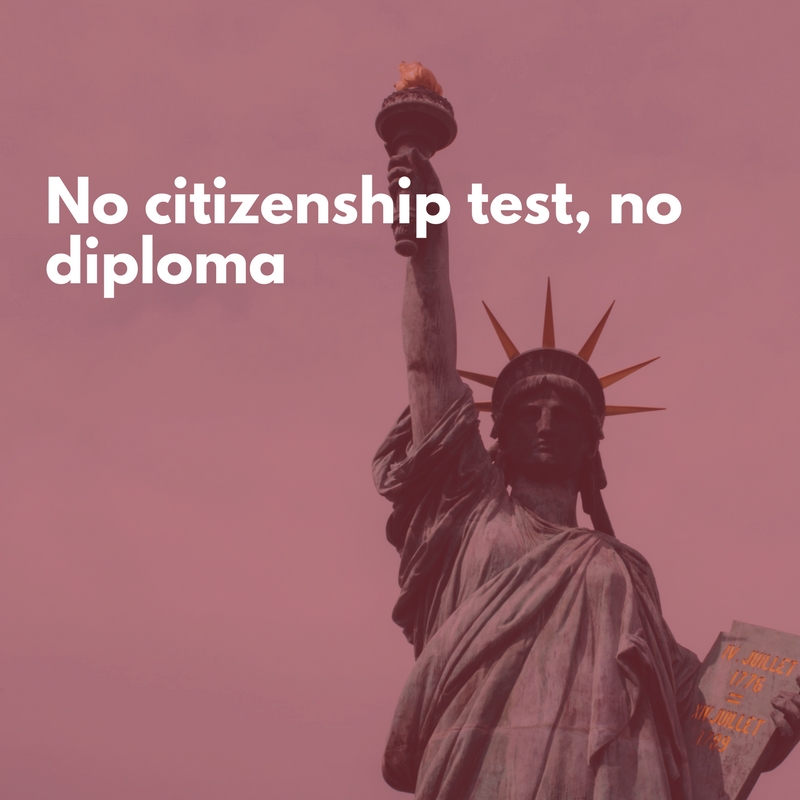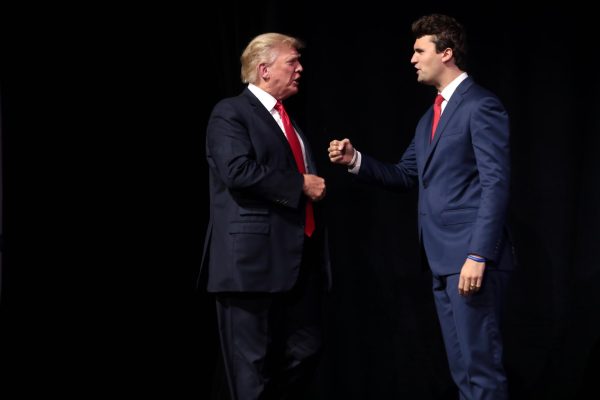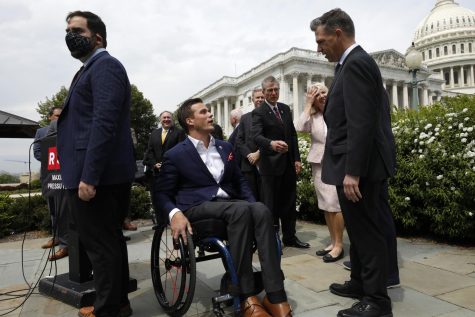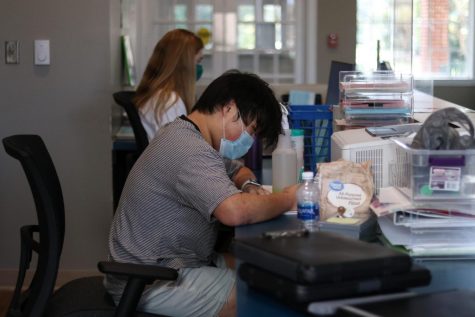No citizenship test, no diploma
Editor’s Note: Samantha Durham is a senior at UNCW studying sociology. She is the Opinion Editor for The Seahawk and enjoys concentrating her work on social issues. All opinions expressed in this article are solely those of the author. Samantha may be found on Twitter @Durham_Sam. All suggestions and inquiries may be sent via email to [email protected].
An interesting bill is making its way through the state of Iowa. House Study Bill 5-73, proposes that high school students in the state of Iowa be required to take a citizenship exam in order to graduate. According to CNN, this exam would be incredibly similar to the citizenship exam that immigrants take when applying for United States citizenship.
This citizenship exam would include 100 questions but only 10 would be selected for a student to answer. In order to pass, a student would need to correctly answer at least 60% of the 10 questions asked correctly, reported CNN.
House Study Bill 5-73 was introduced to the state by Republican Rep. Walt Rogers. Rep. Rogers is currently serving his fourth term in the Iowa House and believes that students should have a basic knowledge of United States civics, reported NPR.
I became particularly interested in this bill when I discovered that it was similar to the exam immigrants must take to achieve citizenship in the United States. I decided to test my own knowledge on the subject and see if I could graduate high school under the parameters of House Study Bill 5-73.
The quiz I took was on CNN’s website and consisted of ten questions similar to the proposed test for Iowa high schoolers. Some of the questions were historical such as “Who did the United States fight in World War II ?” While other questions were more focused on the functions of American democracy, for example “How many Senate seats are there ?”
I did fairly well as I made an 80% on my citizenship exam. I knew that The Louisiana Purchase occurred 1803 and that American Presidents serve four year terms. However, those are just some of the questions the exam can throw at you and mine seemed fairly easy.
However, not everyone in the United States is very well educated in civics and American history. If you scroll through YouTube or Facebook you can find videos showing people who are not even sure who the Vice President is currently (it’s Mike Pence, by the way).
I decided to watch some of these videos, just to see how many answers people got wrong or what the different responses were. ABA Journal made a video several years ago that depicts just how many Americans might need a refresher civics course.
One of the questions asked was “How many amendments are in the United States constitution?” The answers varied with some people hitting the nail on the head (27 amendments) to others being a little off. One person said 12 while another person reluctantly answered 10.
Another question people were asked was “When was the Declaration of Independence signed?” I thought this was a tough one, but I got very close with my guess. I said 1775 when the correct answer is 1776. Other people were not so on target, as one woman answered 1740’s.
While we cannot claim that all Americans lack civics and history knowledge, it does seem a little hypocritical to require immigrants to know civics and history information if we ourselves do not even know it.
House Study Bill 5-73 would be a great addition to American education in my book. Many students pass off civics and history as being relatively unimportant when realistically it can hold lessons for moving forward. Not to mention, if the government is going to force immigrants to know their civics knowledge, why should natural born citizens be able to live life without it?
This bill also would help ensure that students leave high school knowing how civic engagement works. Students would have to learn about voting, branches of government and the amendments, thus not only teaching them how to better understand their rights but also make better informed political choices.
House Study Bill 5-73 also works towards ensuring students have just important general knowledge about the country they call home. I agree if you live in the country you should have some idea of how it came to be and how it runs day in and day out. However, that knowledge certainly should not be expected of just immigrants becoming citizens but all Americans as well.
![]() Loading ...
Loading ...










